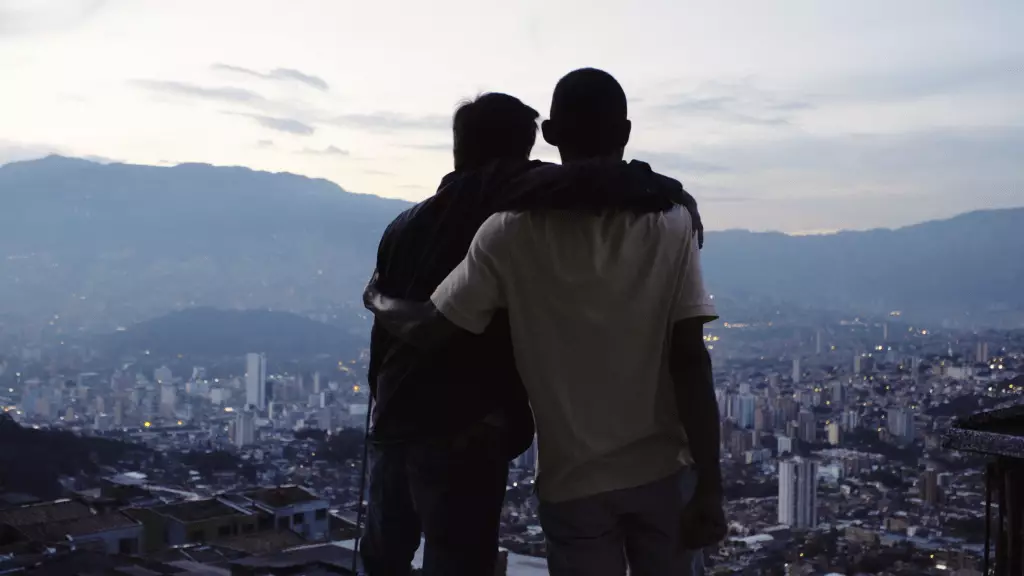In a groundbreaking development for Colombian cinema and societal healing, today’s special screening of “Lara: The Man Who Tried To Save Colombia” is finally shining a light on the buried truths and emotional scars left by one of history’s most notorious criminals. The documentary, produced by Banijay and co-presented by the Jorge Lara Restrepo Foundation, delves deep into the complex relationship between two sons: Jorge Lara, whose father fell victim to the drug lord Pablo Escobar, and Sebastián Marroquín, the son of Escobar himself. With the screening symbolically held in Bogotá on the anniversary of Rodrigo Lara’s assassination, this event stands as a powerful reminder of Colombia’s turbulent past and its ongoing quest for accountability and peace.
The Call for Justice
While the film promises an intimate exploration of reconciliation, its broader narrative reverberates with calls for justice, accountability, and recognition of Colombia’s fraught history with narcotrafficking. As Gavan, the film’s director, aptly pointed out, the documentary serves as a “call to action” for the Colombian government to confront the unresolved pain stemming from Rodrigo Lara’s assassination. The fact that Jorge Lara died during the making of this film adds a haunting dimension to the story, emphasizing how generational pain persists and how the promises of justice remain unfulfilled. These emotional layers prompt viewers not just to engage with the story, but to reflect on the socio-political environment that still harbors corruption and a culture of impunity.
Bridging Divide Through Shared Pain
At its core, the documentary reveals that beneath profound grief and a thirst for vengeance lies the possibility of understanding and reconciliation. Jorge Lara and Sebastián Marroquín’s unexpected friendship emerges as a beacon of hope, suggesting that even in the shadow of profound betrayal and loss, a mutual desire for a better future can unite two people from remarkably divergent backgrounds. As the audience anticipates the emotional journey portrayed in the film, the narrative aptly portrays how shared experiences can forge bonds, transforming adversaries into allies.
The emphasis on humanizing individuals who are often relegated to mere headlines—a son of a slain politician and a son of a criminal mastermind—asks us to shift our focus from the sordid details of violence to the search for healing. In this way, both Jorge and Sebastián become vehicles for a broader message of reconciliation that challenges prevailing narratives of revenge and divisiveness.
Systemic Corruption and Societal Oblivion
However, the documentary does not shy away from confronting uncomfortable truths about systemic corruption in Colombia. The poignant words of Lina and Carolina Flórez García, co-founders of the Jorge Lara Restrepo Foundation, highlight this stark reality, suggesting that “Lara: The Man Who Tried To Save Colombia” represents more than a film; it embodies an act of resistance against a culture of silence and unaccountability. By addressing the systemic impediments that have silenced victims and marginalized truth, the film underscores the powerful need for narrative justice.
This pressing issue transcends individual stories; it reflects a nation grappling with the ramifications of violence at a multi-generational level. By urging society to remember and acknowledge its history, the film pushes back against a tendency toward forgetfulness, particularly regarding unsolved crimes that continue to haunt Colombian society.
A Milestone for Social Healing
The screening of this documentary not only marks a significant milestone in Colombian cinema but serves to stimulate a wider dialogue on national identity, collective trauma, and the complex steps towards healing. As high-profile attendees, including diplomats, family members, and political leaders, gather in Bogotá, the event has transformed into a poignant symbol of unity in a country still longing for peace and stability.
By transforming personal tragedy into a narrative of hope and resilience, “Lara: The Man Who Tried To Save Colombia” embodies the spirit of a nation eager to confront its past while striving for a brighter future. The film’s ability to intertwine personal and political narratives reflects a growing recognition that stories of pain and hope are indispensable to Colombia’s quest for truth and reconciliation.


Leave a Reply